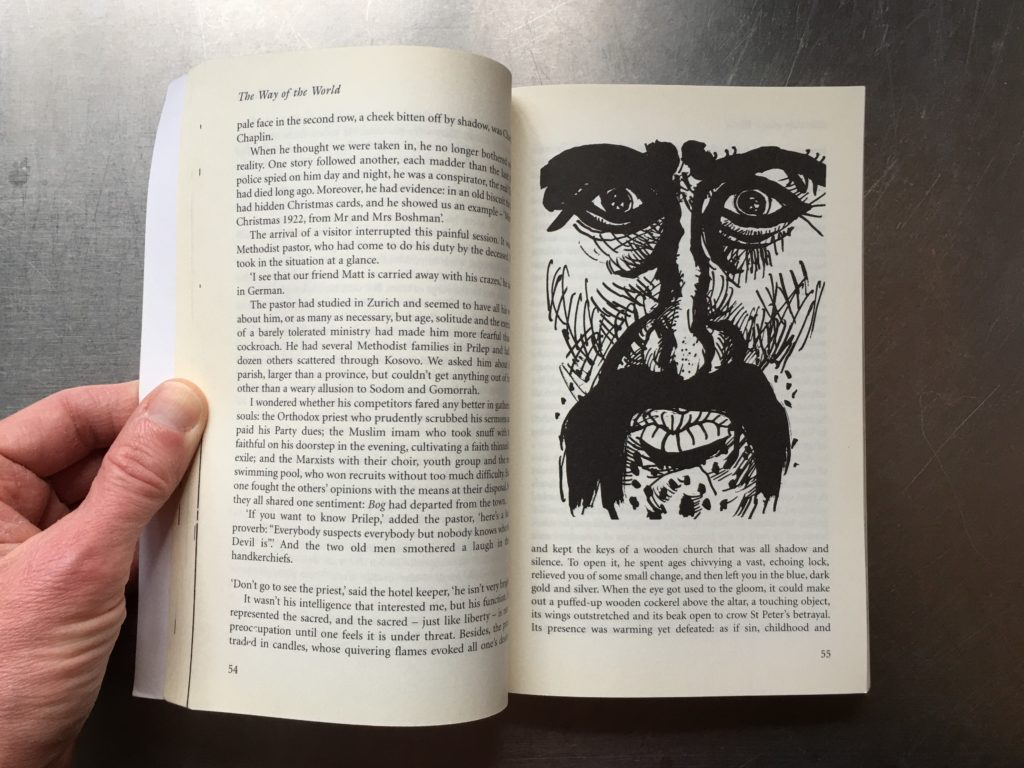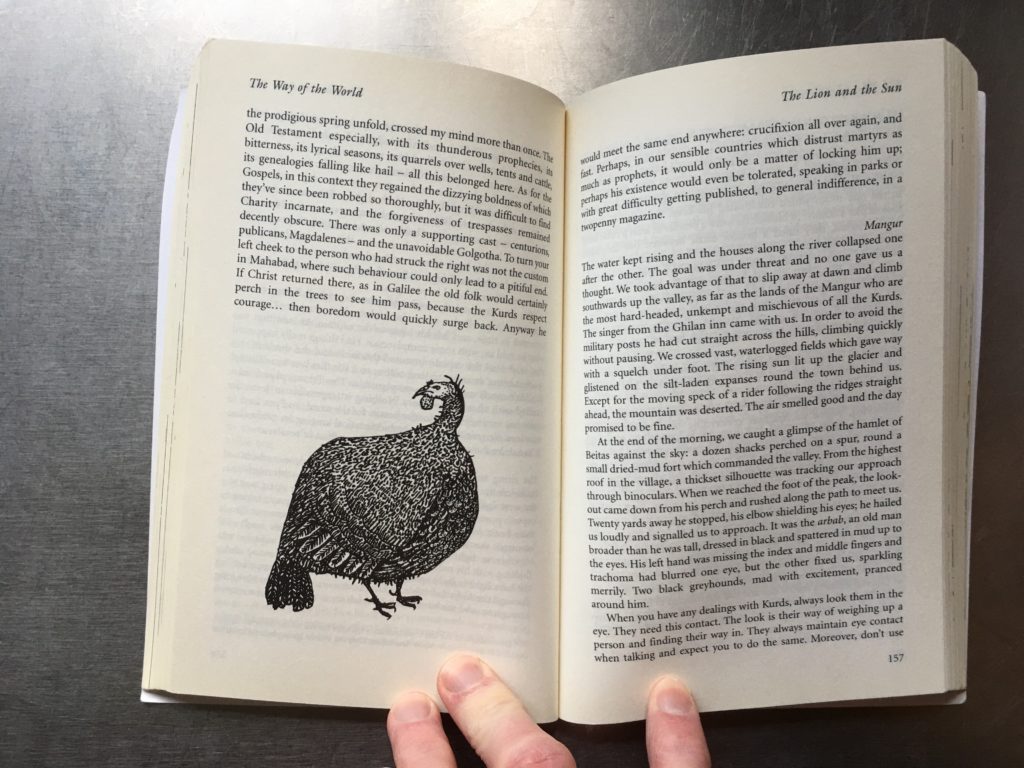This was my first travel book.
I’d been attracted by the cover colour scheme. A two tone design of pale cream and rich burgundy. And of course its cover photo: a battered old Fiat Topolino (the quintessential car of mid 20th century Europe), a young man hanging out the roof and, rolling out in the background, the open road.
A road that led from Geneva to the Khyber Pass.
For me The Way of the World is the definitive travel book. All the dreams you’ve ever had of taking a car and adventuring were first realised by Nicolas Bouvier and Thierry Vernet. A writer and a painter. An illustrator and a humble crafter of words. Poets in ink.
“We denied ourselves every luxury except one, that of being slow”
Together they take a journey for two years with money enough for four months. The route takes them across Yugoslavia (it’s 1963), Greece, Turkey, Iran and its deserts (yes, in a tiny Fiat Topolino), as well as Afghanistan and Pakistan. But reading it feels endless. Until it ends. I must have read the last chapter a dozen times to hold on to the feeling it leaves me with.
And then, in other passages, I have been so shocked by its casual beauty that I’ve had to stop. Close the book. And gaze into the distance so that I could prolong the moment, the warmth of the scene portrayed.
“Travel outgrows its motives. It soon proves sufficient in itself. You think you are making a trip, but soon it is making you – or unmaking you.”
Why am I moved so much by this book?
I’ve written before about the qualities that make for great travel writing. Mood. Place. A permanence that makes its truths last long after you finish it. But The Way of the World affects me because of something more profound: because it is a book filled with a love for humanity.
Thierry’s fleeting descriptions so lovingly capture the essence and the glow of the people who help, hinder or pass them by. Take this section: in Iran, meditating on the safety of their car & possessions, it suddenly widens out to encompass the Iranian soul and to wonderfully humanise those whom other writers might reduce to background:
“… up until now thieves had been considerate, no doubt because of the lines by Hafiz which we’d lettered in Persian on the left-hand door:
Even if your night’s shelter is uncertain
and your goal still far away
know that there doesn’t exist
a road without an end –
don’t be sad
For months that inscription served as password and safeguard… In Iran, poetry that was quite hermetic and over five hundred years old still held popular sway to an extraordinary extent. Shopkeepers squatting in front of the stalls put on their glasses to read it to each other across the pavement. In cheap restaurants in the bazaar, which were full of headstrong types you sometimes came across a ragged diner whose eyes were closed in pleasure, his face lit up as a friend whispered poetry in his ear.”

How human and alive are its characters!
There are rogues and scoundrels in the book too. But even when penning the portraits of the infrequent few who try to cheat our heroes in their journey, there is love (and comedy). Take this moment, when their car had broken down, and attracted some unwanted local helpers:
“The Qashqai were lending a hand, and it took is a moment to register that their eyes had lit up, and that while they were pushing a bit, they were pulling even harder. Yes, they’d found us sympathetic but our luggage was a very beguiling sight, and we had difficulty in disengaging the large hands now reaching for it, pretending to laugh… knowing that only the pretence of farce would stop our coming to blows. At the same time we were pushing like galley slaves, and as the slope was steep and the car was laden, it soon got up enough speed for us to leap inside. A few zigzags on the level of the earthern walls left behind even the most zealous of our helpers.”

And this is a humanity that is equalled in Vernet’s naive caricatures and sketches. They rarely illustrate the scene they’re placed amongst, but complement it. A man’s proud and bushy moustache. A chicken staring through a window. Two men in conversation, face to face on the back of a donkey. Lovers lost in a dance.
Here are two men on a journey, seeing two halves of the same world.
It’s a wonderful book. Its love for the people of the world will make you ache to get up and journey into the hills, across the dusty roads of Anatolia and on towards its borders. To strike friendships with weary soldiers, madams and kindly wanderers. To unwind muscles in the hamams of Asia Minor.
To sing songs with fellow travellers.
“Travel outgrows its motives. It soon proves sufficient in itself. You think you are making a trip, but soon it is making you – or unmaking you.”
